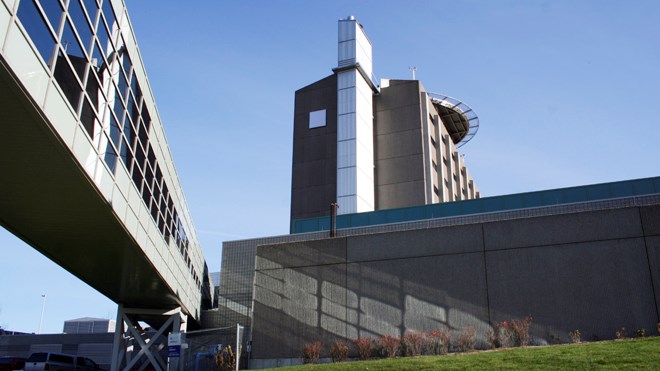Cancer centres and hospitals across Canada are working their way through a shortage of a trio of cancer treatment drugs.
The three intravenous drugs in question are etoposide, vinorelbine and leucovorin, all of which are used at Sudbury's Northeast Cancer Centre on a daily basis.
Every cancer diagnosis gets its own recipe and each drug has a specific application depending on the type of cancer.
Etoposide is used for transplants, testicular cancer, leukemia and lung cancer. Vinorelbine has a wide array of uses including lung and breast cancers. Leucovorin is the lone drug of the three that is not a cancer drug in and of itself, but rather a drug that helps the drug 5FU - often used for gastrointestinal cancer - work better.
"This is a nationwide problem, so every hospital across Canada is going to be affected," said Dr. Lacey Pitre, Regional Systemic Clinical and Quality Lead LHIN 13, Cancer Care Ontario. "Every hospital and every cancer centre has to have a plan. We are in a good situation in a sense that we have a good plan. The first way to manage a drug shortage is to be able to anticipate it."
The Northeast Cancer Centre's pharmacy purchasing department and pharmacy department work in collaboration with Cancer Care Ontario and the minute they get wind that there may be a drug shortage they immediately begin work identifying potentially affected patients and ensuring that they have enough supply on hand to treat those patients.
"We set aside or squirrel away the amount of drug that it takes for them to finish their complete cycles of chemotherapy," said Pitre. "The possibility that a drug shortage would affect somebody in the middle of their treatment is basically zero, because the minute we think something might happen we put the amount of drugs they need to complete their treatment aside immediately."
Federal health minister Ginette Petitpas Taylor's spokesperson Alexander Cohen says the government has facilitated the importation of an international supply of etoposide in the short term. Cohen says companies are conserving existing supply for patients and the shortage for that particular drug is expected to be over by the end of September.
In the case of vinorelbine, he says the company Generic Medical Partners Inc. is putting in place a distribution plan to supply 75 per cent of demand for current orders by October and is also increasing production.
For leucovorin, Cohen says the federal government is working with companies on options to import an international supply as soon as possible.
While these drugs are manufactured here in Canada, Pitre explains that cancer drug manufacturing experiences the same hurdles and speed bumps as most any other product in the world that is manufactured using parts or ingredients from across the globe.
"The easy answer is, if you have a raw material need for a drug that's in a foreign country and something happens like a typhoon or an earthquake, that supply of the actual raw material may be disrupted," said Pitre. "If there's an issue like something gets flagged in the production of the drug and that manufacturer is no longer able to produce it at that time and until they've established the quality of the drug, that takes time."
A common reason for shortages in 2019 that wasn't being seen six or seven years ago, is due to many drugs coming off patent and being produced under generic names.
"When a drug is sold under a brand name the drug company makes quite a bit of money, but when it goes off patent and there's generic drugs available there's less money to be made," said Pitre.
"Often times many companies will see that they're not making a lot of money off a certain drug so why bother; that's the scary thing when it comes to oncologists, if we only have one generic supplier of a drug and something happens to that supply chain then that's what leads to these things. The simple answer is, if raw materials are disrupted or there's a quality concern then that leads to downstream disruption of getting the drug."
All three of the drugs that are part of this shortage are generic, off-patent drugs and there isn't a large group of manufacturers that are churning them out as there once was when they were under patent.
Pinning down how many patients in Sudbury and the northeast that could potentially be impacted by this shortage is a difficult task, as chemotherapy sessions can last anywhere from 16 weeks up to six months, and there is a lot of overlap that occurs between patients who are receiving treatment.
"When patients who have cancer read these types of stories it can make them very scared and these are patients who are already scared and on treatment and may be dying or not dying of cancer," said Pitre.
"I think it's incredibly important that what comes across is, yes, drug shortages happen all the time, they're more frequent and they do have the potential to impact patients, but the Northeast Cancer Centre has a process in place that involves anticipating a shortage, immediately identifying affected patients, removing the stock for those patients, assembling a drug shortage working group that has all the critical players implementing conservation strategies, sharing within our region, having a national coordinated strategy to import these drugs and effectively communicate with every single patient that is affected."
– Sudbury.com
